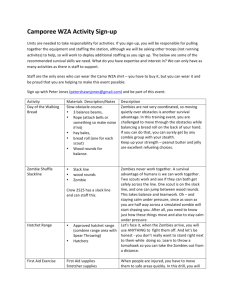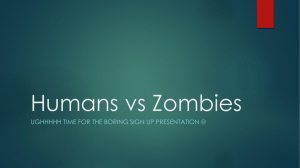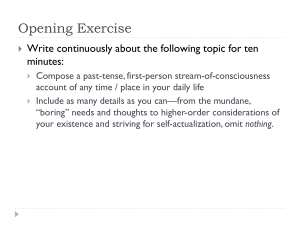ZBL - Resources and Training for Education
advertisement
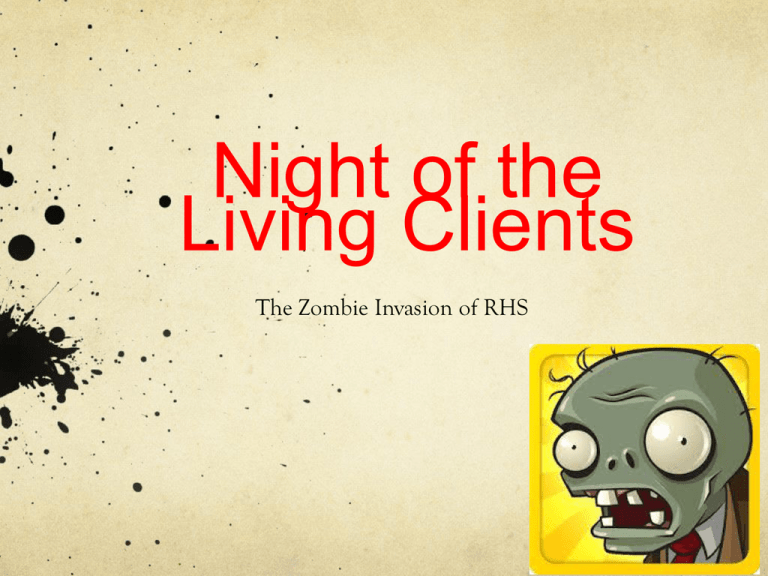
Night of the Living Clients The Zombie Invasion of RHS Zombie Based Learning What is Zombie Based Learning? What is ZBL? Part II One Teacher's Curriculum Geography has always been a learning target for social studies teachers, and David Hunter, who teaches at Bellevue Washington's Big Picture School, decided to create a curriculum using Kickstarter as its funding source. He sought to make geography relevant through engaging scenarios and stories with a zombie theme tying it all together. The whole curriculum is standardsbased and includes over 70 lessons where clients must "consider how to duck the undead invasion, secure their supplies and, eventually, rebuild society" through a variety of activities, worksheets and discussions. The curriculum was recently featured as a part of the TedEd educational series. What is ZBL? Part III Zombie-Based Learning is a rigorous curriculum designed to meet the 2012 National Geography Standards for up to 8th grade. These standards combine geographic knowledge with deep concepts of geographical thinking. Clients will be assessed on their work and performance in meeting these standards and completing projects. These assessments will give a more authentic view of a student’s ability to apply their learning. In addition to being rigorous, Zombie-Based Learning is designed to be engaging. There is no rule that says school can’t be challenging and engaging. Clients will create projects to show how they would use geographical skills to show how they would survive the zombie outbreak and rebuild society. They are encouraged to use creativity in these projects and express their ideas. A narrative is also included with the curriculum. This story sets up the projects, explains why they need to be completed, and gives context for the geographic thinking being used. Even thought zombies are used to help get kids interested, this curriculum is entirely appropriate for middle school. It was designed by a middle school teacher for middle school clients. The narrative is rated appropriate for ages 9 and up. This is about giving clients an exciting context for their work, not about scaring them with gruesome images. Many schools as well as national education and geography organizations have show their support and enthusiasm for these lessons. What are the goals of ZBL? The major goals of Zombie-Based Learning are to: Increase student engagement Provide project-based lessons Meet rigorous national standards through authentic assessment How would ZBL work at RHS? Two week trial run for the second half of October 2013 and a full month run October of 2014. Cross Curricular in the High School Every class will touch on some aspect of the RHS zombie apocalypse Science Many in the zombie community (did I just write that?) believe that people become zombies due to a virus, and many of the films and literature echo this as a possible method of transmission. This being the case, clients could investigate the subject of viruses and bacteria using zombies as the disease being passed. They might come up with scientific methods for eradicating the disease or simply mitigating its effect. They might even hypothesize the biology behind zombies. Again, the topic of zombies is an entry point to engage clients in learning significant content. Math Related to the science component of zombies, many diseases increase at an exponential rate. Clients could analyze different population centers and predict its spread using exponential functions. They could determine when everyone is infected and map the spread using the math data they calculate, or even explore rate of decay. Clients could also investigate what happens when a certain number of people are vaccinated to help prevent the spread. Language Arts While much of the world of zombies is portrayed in comics and films, ELA teachers can use these various texts to engage clients in learning important reading standards. Even the Common Core calls for reading a variety of texts and comparing and contrasting those texts (such as a film and a comic). These stories feature compelling, complex characters under extreme situations that many of us can identify with. Clients could analyze the various features of the comic/graphic novel genre, or engage in character analysis. Consider using these zombie-based materials as scaffolding for more complex texts. For example, the Novel Pride & Prejudice & Zombies which gives clients the full text of the Jane Austin text with the addition of a zombie invasion subplot or the novel Warm Bodies by Issac Marion. Clients can also write the story of the Zombie Invasion of RHS! Civics and Social Studies How can you re-build a civilization? What type of Government would work in this new world? Clients must learn about other forms of government, past and present, to recreate a functioning government. Art and Multi-Media Clients will make their own graphic novel detailing the invasion of RHS. Clients can make their own mini zombie movie which would require skills in Excel for budgeting and word for scripting. Clients will make a Zombie Outbreak Survival pamphlet with appropriate text and graphics. Drama Clients can write and perform a skit based on the zombie invasion. Clients can act in the multi-media movies. Clients can construct props and sets appropriately. Culinary Clients would have to learn what is perishable and what is not. Clients would have to be creative about what they could make with only limited resources. Woodworking Clients can learn about creating make shift structures How to build and/or adapt tools How to woodwork in a society with no power How to zombie proof existing residences and buildings Resources http://www.zombiebased.com/ http://www.kickstarter.com/projects/hunterd/zombiebased-learning-geography-taught-in-zombie-a http://www.edutopia.org/blog/zombie-based-learningandrew-miller http://www.innovationexcellence.com/blog/2013/06/26/e ducation-innovation-zombie-based-learning/ http://www.gamification.co/2013/06/28/how-to-teach-andengage-students-with-zombies/
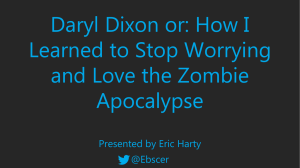
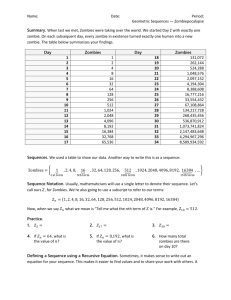
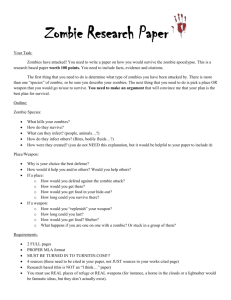
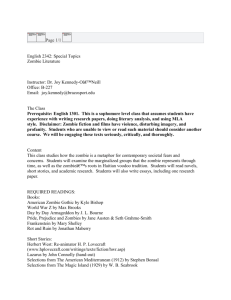
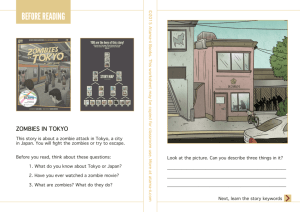
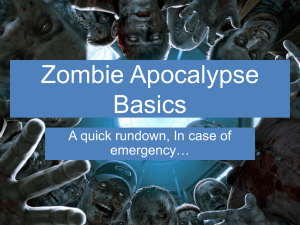
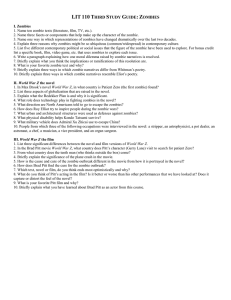
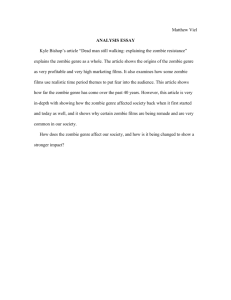
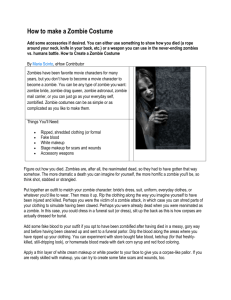
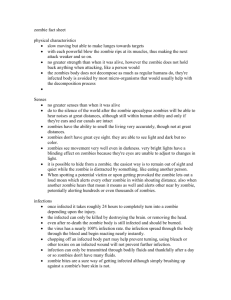
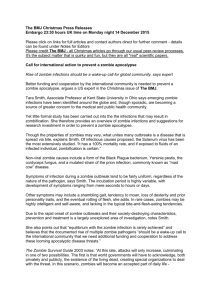
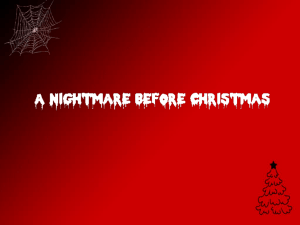
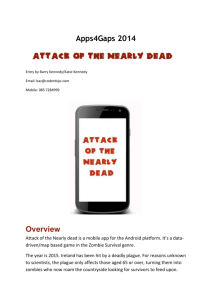
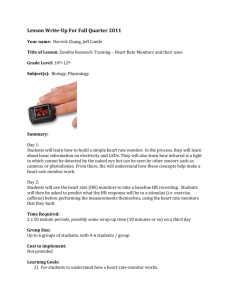
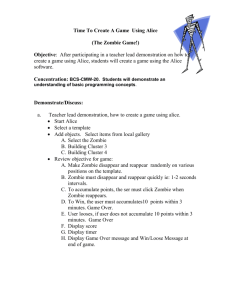
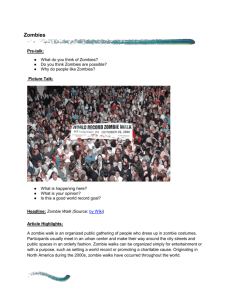
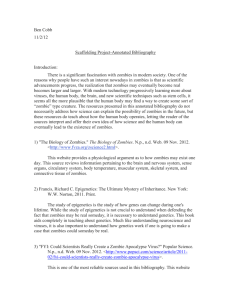
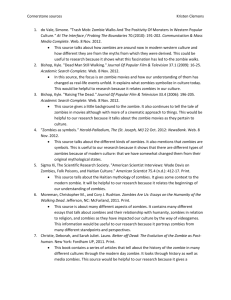
![Concept Slide Template []](http://s2.studylib.net/store/data/005344415_1-0c39dc3e8743a4163244c990d3b4b919-300x300.png)
